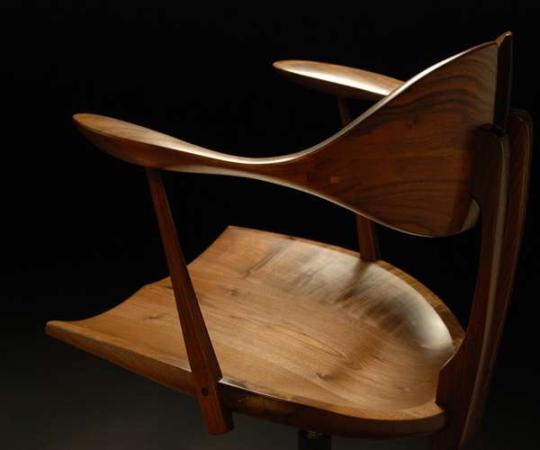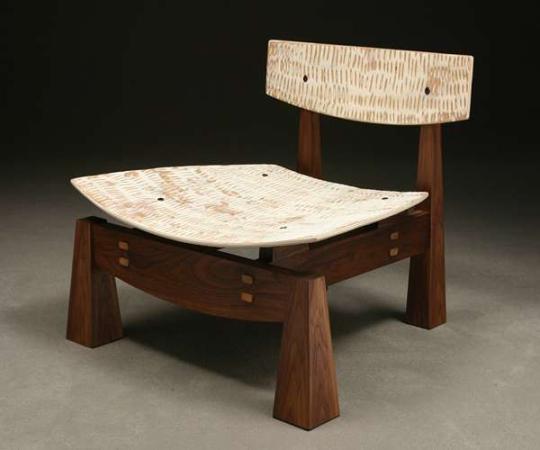When it comes to blending aesthetics, functionality, and craftsmanship, Japanese wooden chairs truly stand out as exquisite pieces of furniture. Rooted in a rich history of traditional woodworking techniques, these chairs offer both comfort and elegance. In this article, we will explore the unique features of Japanese wooden chairs, their cultural significance, and their growing popularity in the global market. 1. Traditional Craftsmanship: Japanese wooden chairs are meticulously crafted with a strong emphasis on precision and attention to detail. Skilled artisans employ time-honored woodworking techniques to create chairs that are not only visually appealing but also structurally sturdy. Techniques such as mortise and tenon joinery and dovetail joints are utilized in the construction process, ensuring the durability and longevity of these chairs.

.
 2. Simplicity and Minimalism: Japanese wooden chairs are celebrated for their minimalist design, embodying the ethos of simplicity and elegance. The clean lines, absence of unnecessary ornamentation, and focus on natural materials reflect the principles of Zen philosophy, promoting tranquility and harmony. This simplicity allows these chairs to effortlessly blend in various interior styles, making them versatile for both contemporary and traditional settings. 3. Sustainability and Environmental Awareness: Japanese wooden chairs exemplify a commitment to sustainability and environmental consciousness. Sustainably sourced woods such as hinoki, cedar, and oak are commonly used in their production. The use of renewable materials aligns with the traditional Japanese concept of respecting nature and preserving its resources.
2. Simplicity and Minimalism: Japanese wooden chairs are celebrated for their minimalist design, embodying the ethos of simplicity and elegance. The clean lines, absence of unnecessary ornamentation, and focus on natural materials reflect the principles of Zen philosophy, promoting tranquility and harmony. This simplicity allows these chairs to effortlessly blend in various interior styles, making them versatile for both contemporary and traditional settings. 3. Sustainability and Environmental Awareness: Japanese wooden chairs exemplify a commitment to sustainability and environmental consciousness. Sustainably sourced woods such as hinoki, cedar, and oak are commonly used in their production. The use of renewable materials aligns with the traditional Japanese concept of respecting nature and preserving its resources.
..
 Furthermore, the durability of these chairs ensures their longevity, reducing the need for frequent replacements. 4. Ergonomic Design: Beyond their visual appeal, Japanese wooden chairs are celebrated for their ergonomic qualities. Crafted to provide ample back support and comfortable seating, these chairs promote proper posture and encourage a relaxed seating experience. The ergonomic design offers unparalleled comfort without compromising the sleek and elegant appearance. 5. Cultural Significance: Japanese wooden chairs hold a significant cultural value in Japan. They are often seen in traditional Japanese tea houses, where they are used during tea ceremonies, a practice rooted in centuries of tradition.
Furthermore, the durability of these chairs ensures their longevity, reducing the need for frequent replacements. 4. Ergonomic Design: Beyond their visual appeal, Japanese wooden chairs are celebrated for their ergonomic qualities. Crafted to provide ample back support and comfortable seating, these chairs promote proper posture and encourage a relaxed seating experience. The ergonomic design offers unparalleled comfort without compromising the sleek and elegant appearance. 5. Cultural Significance: Japanese wooden chairs hold a significant cultural value in Japan. They are often seen in traditional Japanese tea houses, where they are used during tea ceremonies, a practice rooted in centuries of tradition.
…
 These chairs, along with other elements, serve to create an atmosphere of calmness and mindfulness during these ceremonies. The cultural significance and heritage associated with Japanese wooden chairs make them highly sought-after by collectors and enthusiasts worldwide. Conclusion: Japanese wooden chairs are more than just pieces of furniture; they are works of art and embodiments of a profound cultural legacy. Combining traditional craftsmanship, simplistic design, ergonomic features, and sustainable practices, these chairs showcase the timeless elegance that has captivated people for centuries. As the demand for authentic and high-quality furniture continues to rise globally, Japanese wooden chairs are increasingly appreciated for their unique blend of functionality and artistic beauty.
These chairs, along with other elements, serve to create an atmosphere of calmness and mindfulness during these ceremonies. The cultural significance and heritage associated with Japanese wooden chairs make them highly sought-after by collectors and enthusiasts worldwide. Conclusion: Japanese wooden chairs are more than just pieces of furniture; they are works of art and embodiments of a profound cultural legacy. Combining traditional craftsmanship, simplistic design, ergonomic features, and sustainable practices, these chairs showcase the timeless elegance that has captivated people for centuries. As the demand for authentic and high-quality furniture continues to rise globally, Japanese wooden chairs are increasingly appreciated for their unique blend of functionality and artistic beauty.



